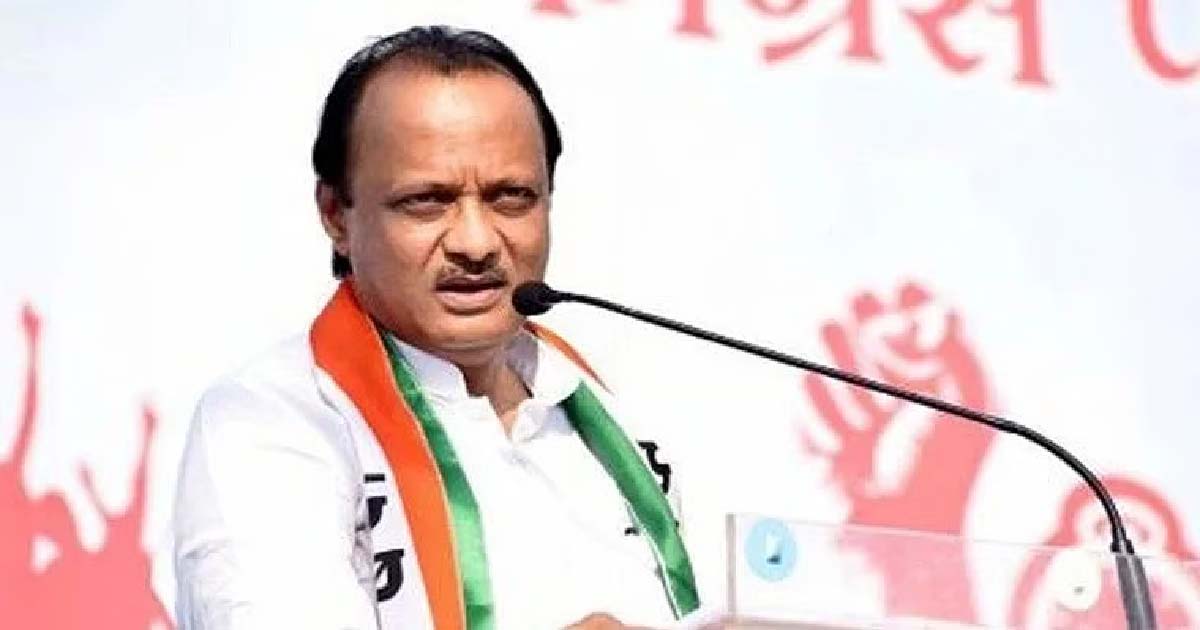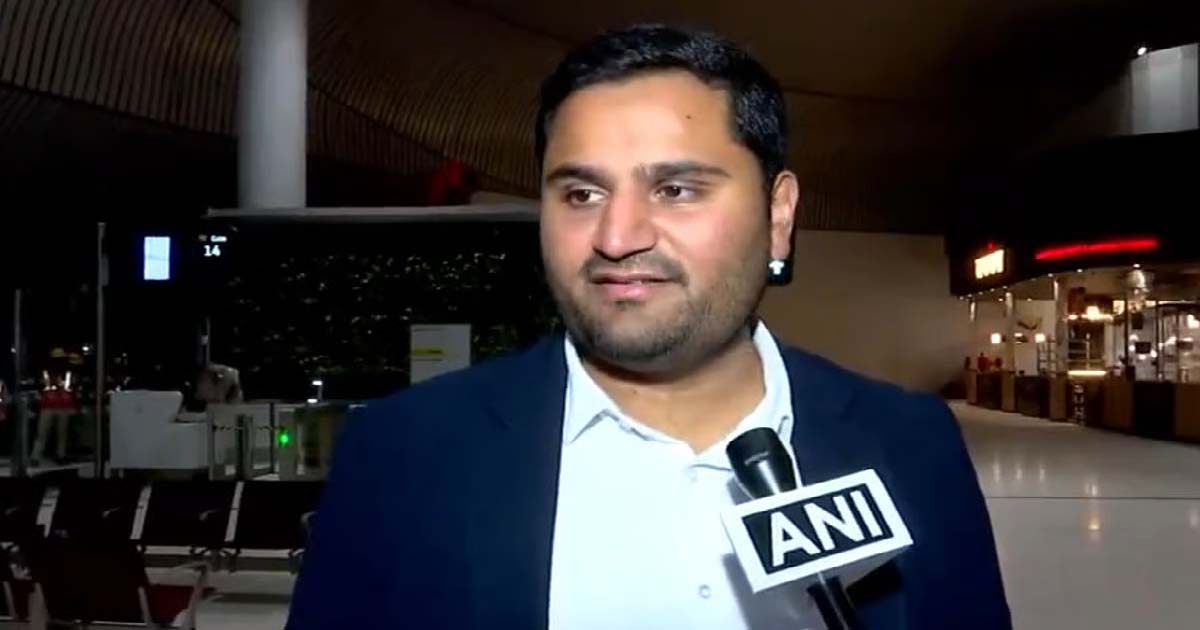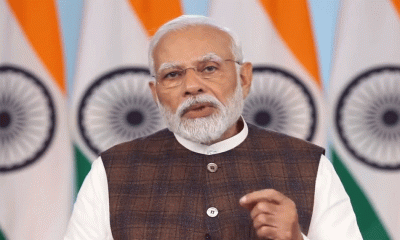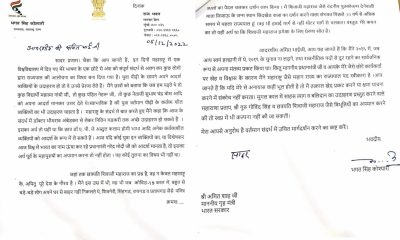National News
Begin the change from Gujarat, Telangana leaders dare Amit Shah

Telangana is considered as mini-India because of its true cosmopolitan nature and the language sentiments here not being as strong as in Tamil Nadu or Karnataka, but Union Home Ministers Amit Shahs recent statement that Hindi should be the alternative to English for communication among Indians has drawn the ire of all.
Political parties and academicians see this as an attempt to impose a particular language on India though unity in diversity is the country’s strength. They warn that this regional chauvinism will boomerang.
Some political leaders have slammed the BJP for what they call its double-standards on the language issue, and dared the party to start imposing Hindi from Gujarat.
The ruling Telangana Rashtra Samithi (TRS) has come down heavily on the BJP for doing politics over language, saying the saffron party wants to decide not only what one should eat and wear, but also the language one should communicate in.
“Why don’t we let people of our great nation decide what to eat, what to wear, who to pray to and what language to speak,” said TRS working President K.T. Rama Rao, who warned that language chauvinism or hegemony will boomerang.
He also believes that rejecting English will be a great disservice to the youngsters of this nation who have global aspirations.
“Already our students in different states are missing the English language to be competent. While it is the wish and will of citizens to practice what they want, imposition is not right. After Amit Shah spoke, we have seen on national channels many BJP MPs toeing the line of the �one nation one language’ theory. That’s more dangerous than the agenda Amit Shah has brought. This questions the identity of states and different regional languages,” TRS leader Manne Krishank told IANS.
He also believes that the BJP is adopting dual standards on the language issue.
“In February, the Gujarat government took a decision that all sign boards should be in Gujarati. The government of India ruled by the BJP is pushing states that they should practice Hindi, whereas Gujarat is talking about Gujarati. Instead of preaching states down south, they should start from Gujarat if they really believe in practicing what the preach. Let them start from Gujarat,” said Krishank, who is the convenor of the social media wing of the TRS and also chairman of the Telangana State Mineral Development Corporation (TSMD).
“It’s an absolutely uncalled for remark by Amit Shah against the very spirit of the Indian Constitution. Not just the federal concept of the Constitution, but the very spirit of unity in diversity. Enforcing a particular language upon the entire country, particularly in southern India, is an attempt of expansionist imperialism.
“I mean, they want to somehow take control of the region and therefore they are using language now. But I think India is mature enough to understand this dubious politics of region, religion and now again language. This is essentially to establish their dominance,” said senior Congress leader Dasoju Sravan Kumar.
He believes there is no language problem in almost the entire south India.
“You don’t see language problems, particularly in the context of Telangana, where there are people who speak Urdu and Hindi. There are people who come from all over India — Gujaratis, Parsis, Rajasthanis, Tamilians, Malayalis and others.
Telangana is like a mini-India where people come from various religions, regions and languages. Per se, this kind of Hindi enforcement by the government of India will only boomerang and Telangana will strongly extend the rebuttal,” said Sravan Kumar, who is a national spokesman of the Congress.
“Language is part of the DNA. How can my DNA be changed just because Amit Shah enforces something? Everybody speaks their mother tongue based on culture, history and traditions. And you suddenly come and say you should speak in Hindi. First you change Gujaratis, and then come to us,” added the Congress leader.
Academician K. Nageshwar has also found fault with the Union minister’s statement.
“Diversity of language, culture, tradition, belief, faith, customs and an underlying unity is India’s true soul. Don’t convert India into a hegemonic regimented society,” said Nageshwar.
He reminded Amit Shah that there is no single language of India. There are several languages of India and linguistic diversity demands equal treatment of all.
The former member of legislative council observed that promoting a language that advantages one set of Indians over others is a recipe for division over diversity.
He wondered why can’t Amit Shah talk of making any south Indian language mandatory in Hindi-speaking states to forge national unity.
“It’s my choice. Let me speak what I want to speak. Why are you forcing me to speak Hindi? It makes no sense. If somebody wants to learn, they are anyway learning. These days there is so much awareness.
“Tamilians are also learning Hindi if they like and if they think that it helps them in business. Language is not a national identity. Language is a medium of communication,” said Sravan Kumar, who also served as assistant professor in human resource management at the Institute of Public Enterprise.
“If you go to Gujarat, how many people speak Hindi there? They speak Gujarati. How many people in Rajasthan speak Hindi? They speak Rajasthani. In Maharashtra they speak Marathi. Language enforcement is essentially some kind of expansionist thinking, imperialist thinking. This is our language and all should practice it. This is a sort of tyrannical and dictatorial tendency,” he said.
Krishank is of the view that the talk of Hindi as alternative language to English is BJP’s style of politics.
“First food, then dress and now language. We have seen it in Karnataka. Hijab, Hilal and now Hindi. They are doing triple H politics,” he remarked.
The TRS leader also reminded Amit Shah that Hindi is spoken in different states differently.
“Someone from Bihar speaks one Hindi, someone from Uttar Pradesh speaks another Hindi. We in Hyderabad speak Deccani which is a different dialect from Hindi. If their �nahin’ is �na’ for someone, it is �nakko’ for me. It’s �Bhao’ in Maharashtra and it’s �Bhai’ in another place.
“More than necessity or anything, comfort level has to be seen. For instance, when Nirmala Sitharaman speaks in Parliament in English, it is understood. We appreciate that she is a good orator, but when she speaks Hindi, she makes so many mistakes. It looks as if she is speaking some other language. This is how it is.
“If tomorrow a Hyderabadi goes and speaks, it will be totally different. In Bollywood movies, Hyderabadi Hindi is shown for comedians. What they are trying to do is mere politics. Imposition of politics through language,” Krishank said.
He believes that it also matters with whom one is communicating.
“If we are visiting another state, whom we are communicating with? If I am communicating with an auto rickshaw driver it is different, but what if I am going for a meeting of corporate heads. Are they going to make it mandatory for every corporate industry to work in Hindi? If I am going to an MNC in Mumbai to work, will I go and give an interview to the MD in Hindi,” he asked.
National News
Maharashtra Deputy CM Ajit Pawar-Led NCP To Consider Solo Run In Thane As Allies Exclude It From Seat Talks

Thane: The Ajit Pawar-led NCP on Tuesday said it has kept open the option to contest the upcoming Thane municipal council elections separately as it was being kept out of the seat-sharing discussions by its allies in Mahayuti.
Nationalist Congress Party spokesperson Anand Paranjape claimed that while local leaders of the BJP and Shiv Sena have already initiated talks to finalise seat sharing in the TMC polls, the NCP has not been invited for these deliberations.
“Even though meetings of the alliance partners are underway, the NCP has not been invited. Therefore, we have begun preparations to contest the elections independently,” he said.
Our Thane district president, Najeeb Mulla, has not been contacted by either the BJP or the Shiv Sena, Paranjape claimed.
He said the NCP would declare its seat expectations only after being formally invited to the alliance talks.
He said 380 aspirants have been interviewed over the past two days.
“If the NCP is offered respectable representation in the alliance for the Thane Municipal Corporation, we are ready to contest together. Otherwise, the NCP is fully prepared to contest all 131 seats on its own,” he added.
Paranjape said the NCP favours contesting as part of the grand alliance wherever possible, but local tie-ups or independent contests would also be considered if necessary.
Referring to the recent elections to 288 municipal councils and nagar panchayats, Paranjape said mayors from the grand alliance of BJP, Shiv Sena, and NCP were elected in around 215 bodies.
“People of Maharashtra have reaffirmed their faith in the Mahayuti government led by Chief Minister Devendra Fadnavis and Deputy Chief Ministers Ajit Pawar and Eknath Shinde,” he added.
The long-awaited polls to 29 municipal corporations in Maharashtra, including cash-rich Mumbai, will be held on January 15, and votes will be counted on the following day.
Crime
Delhi Police arrest female drug peddler, seize ganja and cash

New Delhi, Dec 23: In a major boost to the Centre’s ‘Drug-Free India’ campaign, Delhi Police have arrested a female drug peddler in Nihal Vihar and recovered 341 grams of ganja along with Rs 3.72 lakh in cash, suspected to be proceeds from the sale of narcotics, officials said on Tuesday.
According to Delhi Police, the action was carried out by a patrolling team of Police Station Nihal Vihar on December 20, following specific directions from the Deputy Commissioner of Police, Outer District, to maintain heightened vigilance against drug trafficking.
The team, comprising ASI Arvind, Woman Head Constable Yogita and Constable Sanjeet, was on routine patrol in the Adhyapak Nagar area when they noticed a suspicious woman standing near a house close to Pari Garden with a brown-coloured carry bag.
Police said that as soon as the woman noticed the patrol team, the crowd gathered around her dispersed, and she attempted to flee.
“On sensing the police staff, the crowd dispersed immediately, and the female carrying the brown-coloured carry bag also attempted to flee, but the vigilant team swiftly chased and apprehended her on the spot,” the police said in its press note.
Upon weighing, the contraband was found to be 341 grams of ganja. A total sum of Rs 3,72,830 was also recovered, which police believe to be proceeds from the illegal sale of narcotics.
The seized drugs and cash were confiscated on the spot following due legal procedures.
Subsequently, a case was registered at Police Station Nihal Vihar vide FIR No. 960/2025 under Section 20(b)(ii)A of the Narcotic Drugs and Psychotropic Substances (NDPS) Act. The accused woman was formally arrested in the case.
Further verification revealed that the accused has a criminal history and was previously involved in more than five cases under the Delhi Excise Act, police said.
“The Outer District police remain committed to eliminating narcotics-related crimes and safeguarding the community,” said DCP Sachin Sharma.
National News
‘Stolen Symbol, Hollow Claim’: Shiv Sena (UBT) Attacks Maharashtra Deputy CM Eknath Shinde’s ‘Real Sena’ Assertion After Local Body Polls

Mumbai: The Shiv Sena Uddhav Balasaheb Thackeray (UBT) on Tuesday attacked Deputy Chief Minister and Shiv Sena chief Eknath Shinde over his claim that Maharashtra local body polls have finally settled the debate over the “real” Shiv Sena.
In a scathing editorial in the party’s mouthpiece, ‘Saamana’, the Thackeray camp claimed, “The liars say, ‘Our Shiv Sena is real!’ But what is real and what is fake – the common people of the state recognise this. Those who dedicated their victory to Modi-Shah’s feet, the symbol ‘Shiv Sena’ does not suit those thieves. These same Modi-Shah stole the bow and arrow and handed it over to eight traitors in Maharashtra. The theft of Lok Sabha, Vidhan Sabha and local body elections has taken the form of ‘yours, mine, theirs’. The picture ahead will be different – we have no doubt about this.”
According to the editorial, Eknath Shinde has claimed credit for the work shown by the real Shiv Sena people. This is a hollow credit. His party’s claim of solid work in Lok Sabha, Vidhan Sabha and now local body elections is hollow. “Originally, the name ‘Shiv Sena’ and the symbol bow and arrow were obtained through Amit Shah’s pressure. The merit of the bow and arrow is significant, and Balasaheb Thackeray, the Shiv Sena chief, had established the ‘bow and arrow’ in every household. These ‘merits’ have been stolen and the real Shiv Sena is being talked about,” said the editorial.
It further stated that the dispute between Shiv Sena and the bow and arrow is still pending in the Supreme Court. The Supreme Court has given six months’ time for the Election Commission to make a decision. “Dates are not being set there, but after 40 MLAs crossed over to the other side and the decision was made according to law and constitution, Shiv Sena and bow and arrow are encouraging a decision on whose symbol it is!” the editorial said.
The Thackeray camp said that despite the electoral successes of the Shinde-led Shiv Sena, legal disputes regarding the party’s “real” status and official symbols remain unresolved. It said, “The Supreme Court has scheduled a final hearing for January 21, 2026, to address the symbol dispute between the Uddhav Thackeray and Eknath Shinde factions. A similar hearing for the NCP symbol dispute is set for January 22, 2026. The year ends with political parties shifting focus toward the Brihanmumbai Municipal Corporation (BMC) elections, which are slated for January 15.” The editorial has even questioned the timing of the hearing in the court.
The Uddhav Thackeray-led Shiv Sena alleged, “The results of local body elections are bought and sold through auction. There is no integrity or transparency found anywhere in these results. The ruling party has acquired the art of buying the machinery and voters, and people like Amit Shah kindly make them win elections by stealing the Shiv Sena and bow and arrow. As Chief Minister Devendra Fadnavis vows to transform the face of the state following these results, the opposition remains defiant. They describe the current political state as one of ‘looting and deception’ and express confidence that the political picture in Maharashtra will shift in the future,” said the editorial.
-

 Crime3 years ago
Crime3 years agoClass 10 student jumps to death in Jaipur
-

 Maharashtra1 year ago
Maharashtra1 year agoMumbai Local Train Update: Central Railway’s New Timetable Comes Into Effect; Check Full List Of Revised Timings & Stations
-

 Maharashtra1 year ago
Maharashtra1 year agoMumbai To Go Toll-Free Tonight! Maharashtra Govt Announces Complete Toll Waiver For Light Motor Vehicles At All 5 Entry Points Of City
-

 Maharashtra1 year ago
Maharashtra1 year agoFalse photo of Imtiaz Jaleel’s rally, exposing the fooling conspiracy
-

 National News1 year ago
National News1 year agoMinistry of Railways rolls out Special Drive 4.0 with focus on digitisation, cleanliness, inclusiveness and grievance redressal
-

 Maharashtra1 year ago
Maharashtra1 year agoMaharashtra Elections 2024: Mumbai Metro & BEST Services Extended Till Midnight On Voting Day
-

 National News1 year ago
National News1 year agoJ&K: 4 Jawans Killed, 28 Injured After Bus Carrying BSF Personnel For Poll Duty Falls Into Gorge In Budgam; Terrifying Visuals Surface
-

 Crime1 year ago
Crime1 year agoBaba Siddique Murder: Mumbai Police Unable To Get Lawrence Bishnoi Custody Due To Home Ministry Order, Says Report


















